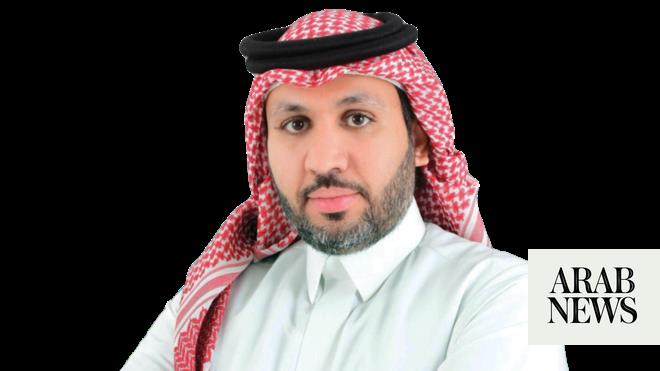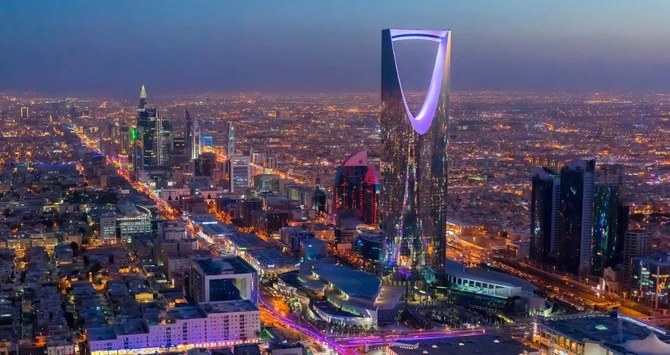
RIYADH: Saudi Arabia is setting guidance plans for sustainability with mega projects in NEOM, Riyadh and other cities across the Kingdom.
The term “sustainability” includes all efforts that humans take, either directly or indirectly, to protect the environment and ensure their survival in the future, according to the US Environmental Protection Agency. This concept is important as humans are dependent on the environment and its natural resources for their existence.
Sustainable development as a concept became well known after 1972 when the UN highlighted it at a conference in Stockholm on the human environment, according to the Sustainable Development Commission.
With a plan to become a global leader in sustainability, Saudi Arabia’s ‘Race to Zero’ is an important step toward a greener future, says Dr. Mohammed Al-Surf , Senior adviser at Jacobs
In the corporate world, for example, although the majority of executives believe in sustainable importance, a little over half of them incorporate strategies that include sustainable goals, said Talal Rafi, an economist and management consultant, in his article on the World Economic Forum website.
Unlike the corporate world, many nations are broadcasting their plans for maintaining sustainability, and Saudi Arabia is one of the countries that is making efforts toward a more flourishing society.
Due to the harsh climate in Saudi Arabia, people previously weren’t as aware as they are now about sustainability. The climate is generally dry and warm in Saudi Arabia, making it challenging to form sustainable projects.
It takes into account financial sustainability and the diversity of non-oil sources of income, which sets out to achieve economic, social, environmental and political goals that make the Kingdom a role model for responsible and comprehensive development that is based on the pillars of true sustainability.
Dr. Sultan Alshareef , Sustainable development expert
However, with the Vision 2030 of Crown Prince Mohammad bin Salman, the Kingdom has taken a new approach to promoting sustainability, which in return enhances the quality of living in the country.
“Saudi Arabia is not only focusing on sustainability, but it has also embraced the concept of ‘Race to Zero’ as part of its Vision 2030 plan, aiming to reduce its carbon emissions and promote investment in renewable energy and green economy,” said Dr. Mohammad Al-Surf, a senior adviser for sustainability and climate action at Jacobs.
Saudi Arabia’s megaproject at NEOM, The Line. (Twitter @NEOM)
Al-Surf said that such an ambitious goal would lead the country to focus on building resilience to climate change and investing in green infrastructure, renewable energy and sustainability.
“With a plan to become a global leader in sustainability, Saudi Arabia’s ‘Race to Zero’ is an important step toward a greener future.”
“The National Program to Maximize the Utilization of Renewable Water Resources” is an idea and methodology proposed by the Saudi Ministry of Environment, Water and Agriculture. HIGH LIGHT
The term ‘sustainability’ includes all efforts that humans take, either directly or indirectly, to protect the environment and ensure their survival in the future, according to the US Environmental Protection Agency.
Through this program, the ministry aims to ensure sustainability in water use for agriculture and for national afforestation, Dr. Abdulaziz Alshaibani, deputy minister for water at the Ministry for Environment, Water and Agriculture, said in an article for SPA.
Dr. Faisal Alfadl, an architect and founder of the Saudi Green Building Forum, said in an interview with Rotana on Green Economy that more than 30 million trees have been produced in Saudi Arabia. There is also the 10 million trees project in Al-Ula, the biggest oasis in the world, and the Green Riyadh project, where 59,000 trees have been planted so far.
Saudi Arabia is expanding its ambitions through even bigger projects such as The Line in NEOM, a zero-car environment that is part of a 100 percent sustainable transport system.
Dr. Sultan Alshareef, an expert in sustainable development, told Arab News how sustainability benefits several sectors, resulting in overall development.
“It takes into account financial sustainability and the diversity of non-oil sources of income, which sets out to achieve economic, social, environmental and political goals that make the Kingdom a role model for responsible and comprehensive development that is based on the pillars of true sustainability,” he said.
With such promising projects, sustainable development is thriving in the Kingdom.












